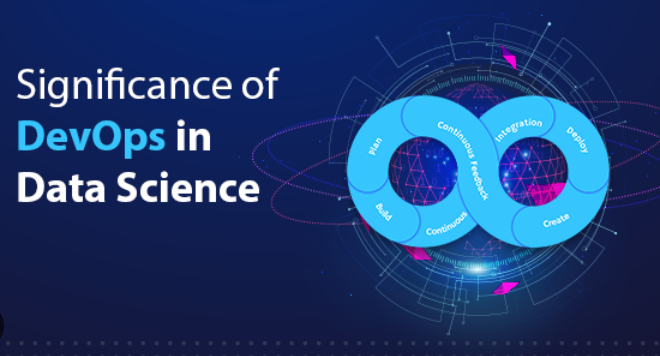Introduction
DevOps has revolutionized software development by merging development (Dev) and IT operations (Ops) to boost collaboration, automation, and efficiency. Its core principles include continuous integration, continuous delivery, and constant feedback, which collectively enhance the speed and reliability of software development.
As data science becomes increasingly central to business strategy, helping companies leverage data for insights, optimization, and decision-making, there’s a growing need to apply DevOps principles to data science workflows. This integration aims to streamline model development, deployment, and iteration by bridging the gap between data scientists, software engineers, and operations teams.
Understanding Data Science in DevOps
In modern software development and operations, data science is crucial for creating models that derive actionable insights from data. These models are embedded in applications to automate tasks, offer recommendations, or predict outcomes.
However, traditional development workflows often fall short in addressing the unique demands of data science. Data scientists encounter challenges such as managing versions, collaborating effectively, ensuring reproducibility, and deploying models, which can slow down development, create bottlenecks, and complicate scaling.
By incorporating DevOps principles, data science workflows can achieve better collaboration, increased automation, enhanced reproducibility, and more efficient deployment. DevOps aligns the efforts of data scientists, software engineers, and operations teams, enabling them to collaboratively deliver high-quality models and applications.
Implementing DevOps in Data Science Projects
To implement DevOps in data science, teams can adapt existing DevOps tools and practices to their specific needs. For instance, version control systems like Git can manage code, data, and model versions. Continuous integration and delivery pipelines can automate the testing, training, and deployment of models.
Successful DevOps implementation in data science involves fostering a collaborative culture and shared responsibility. Data scientists, software engineers, and operations teams must work together, communicate effectively, and share knowledge throughout the project lifecycle.
Version control is vital for managing data and models, ensuring traceability and reproducibility. By storing data and model artifacts in versioned repositories, teams can track changes, revert to previous versions, and collaborate more effectively.
Data pipelines should be designed to efficiently handle data collection, preprocessing, and transformation. Automation in these processes reduces manual effort and minimizes error risks. Additionally, automating model training allows for faster experimentation and iteration.
Testing, validation, and quality assurance are critical aspects of DevOps for data science. Integrating testing frameworks and practices into the workflow helps ensure model reliability and accuracy. Techniques like cross-validation can assess model performance and generalizability.
DevOps practices facilitate the reliable deployment of models into production environments. Continuous monitoring and performance optimization ensure that models deliver accurate results and meet business objectives. Monitoring systems can track model performance, detect anomalies, and trigger alerts for necessary interventions.
Benefits and Challenges of DevOps for Data Science
Adopting DevOps in data science fosters collaboration and communication among data scientists, software engineers, and operations teams. This alignment of goals enhances knowledge sharing and problem-solving capabilities.
Applying DevOps principles accelerates development and deployment cycles, with automation and streamlined workflows reducing manual tasks. This allows data scientists to focus on experimentation and delivering value more rapidly.
DevOps ensures reproducibility and traceability, making it easier to understand and replicate results. Version control and artifact management systems offer a clear history of changes, facilitating collaboration and maintaining data and model integrity.
Continuous monitoring and performance optimization in production are key benefits of DevOps for data science. Teams can proactively track model performance, address issues promptly, and optimize models to sustain their effectiveness over time.
However, implementing DevOps in data science can be challenging. Issues include managing complex data workflows, handling large datasets, ensuring data privacy and security, and integrating diverse tools and technologies. Organizations must carefully plan and tailor their DevOps practices to tackle these challenges effectively.
Conclusion
DevOps offers substantial advantages for data science projects, including improved collaboration, accelerated development cycles, better reproducibility, and enhanced performance optimization. By integrating DevOps practices, data science teams can achieve greater efficiency, reliability, and success in delivering valuable insights and models.
As data science continues to evolve, the integration of DevOps principles will become increasingly critical. The future of DevOps in data science lies in the seamless fusion of data science workflows with software development and operations, enabling organizations to leverage data-driven insights to drive innovation and achieve their business objectives.



